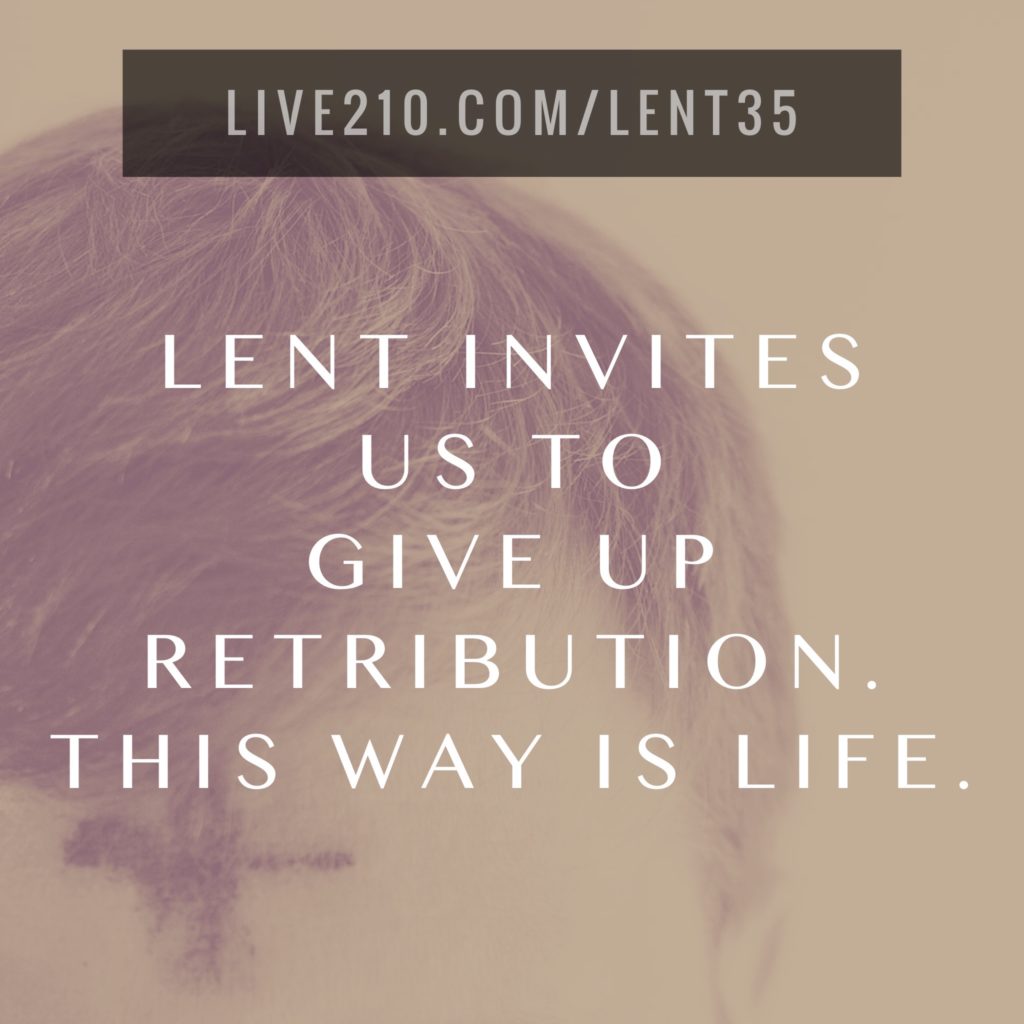5 min. to read.
We’re up to the 35th day of Lent. Luke 23:33-38 is today’s scripture. Jesus is crucified. Jesus forgives.
Finally arriving at the hill of execution, Jesus was affixed to the crossbeam and raised into place. Along with him, two other crosses were also raised, each bearing a criminal condemned to death. A placard meant to shame and mock was placed above Jesus’ head saying, “the king of the Jews.” The solders gambled for Jesus’ clothes. The leaders who had engineered this moment laughed. From the cross, Jesus spoke: “Father, forgive them; for they do not know what they are doing.”
Watching from a distance, you would have thought you were seeing the ignominious end of folks who had run afoul of the harsh edge of Roman justice. Standing near, you would have heard a different perspective. Roman soldiers laughed, saying, “If you really are special, if you really are the King of the Jews, then save yourself!” The religious leaders said something similar, “He saved others; let him save himself… if he is the Messiah, God’s chosen one.” These mocking quips reveal their assumptions.
The Roman soldiers couldn’t imagine a king who didn’t wield the power of violence. You got to be king because you could do violence to others while keeping others from doing violence to you. Torture and death demonstrated your actual status. If you really had been a king, you weren’t one anymore. Most likely, you had never been a king to begin with. The very idea was laughable.
The religious leaders couldn’t imagine a Messiah that could be killed. Being chosen by God meant being chosen for blessing, privilege, and power, didn’t it? If God allowed someone to threaten the Chosen One, it would only be for one purpose–to bring God glory when those who dared raise a hand against God’s anointed would be obliterated or forced to their knees in submission. Someone claiming to be the Messiah who couldn’t save themselves from torture and death had proven themselves a liar.

Both the Roman soldiers and the religious leaders shared the same view of power. Because Jesus was dying, nailed to a cross, he failed to measure up to their definitions. Because he couldn’t or wouldn’t save himself, because he would not use whatever power he had to defeat his enemies, he wasn’t fit to be king or Messiah. Even if he really was the Chosen One, he wasn’t the kind of Chosen One they would accept.
Here in Jesus’ last moments, we see something altogether unexpected. On the cross, Jesus looks at those who don’t believe in him, who cannot make sense of him due to their expectations of power, who are actively trying to destroy him and responds with forgiveness. Not only that, but the forgiveness he offers doesn’t come in exchange for repentance! No. Jesus asks the Father to forgive because those who oppose him don’t understand the depth of what they are doing.
The cross is a revelation, perhaps the most important revelation. It teaches us something new about God. God is not out to prove how powerful God is. God has no desire to force us into submission. God doesn’t do that because that is not God’s character. God’s character is, and always has been, other-centered co-suffering love. On the cross, God is human. On the cross, God is weak. On the cross, God tells us what we cannot admit to ourselves.
We do not understand; we cannot grasp the full depths of who God is. We’ve been doing theology for as long as humans could speak and write. We’ve imagined every shape and size and name for divinity. We’ve built stunning wonders to honor one deity or another. But even with all the different names, ritual systems, and theological explanations, we always arrive at the same end. God is ultimate power, and that power finally manifests itself in divine violence.
The truth that we see in the crucifixion is that we are the ones infatuated with violence, retribution, and wrath. We are the ones who will protect our sense of identity with lies and then protect our lies with violence. We are the ones who believe the highest kind of power is the kind that terrifies people into submission. Because we believe this, we project it all onto God. We are the ones who say, “If you don’t do what God says, God will torture and kill you.” We are the ones who say, “We’re right, and if you don’t agree with us, you’re opposing God.”
What God does and says in response to us? God comes and walks among us as one of us. God takes our torture and death. God holds them up like a mirror so we can see ourselves truly. And then, God forgives because we don’t know what we’re doing.
Lent invites us to give up retribution. This way is life.
